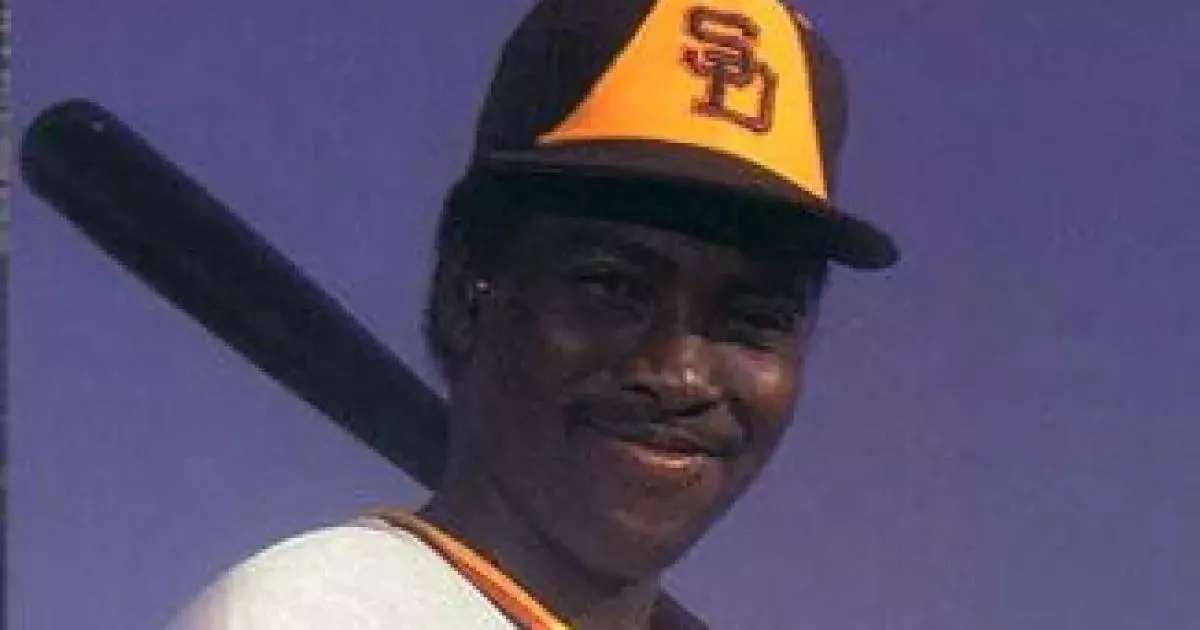Tony Gwynn Sr., known as "Mr. Padre", was a legendary baseball player who spent his entire 20-year career with the San Diego Padres. Renowned for his exceptional hitting, Gwynn won eight batting titles, a record in the National League. He maintained an impressive .338 career batting average and consistently hit above .309 each season. His outstanding performance earned him 15 All-Star selections, seven Silver Slugger Awards, and five Gold Glove Awards, showcasing his prowess in both offense and defense. Gwynn's loyalty to the Padres and his remarkable achievements cemented his place as a beloved figure in baseball history, culminating in his induction into the Baseball Hall of Fame in 2007.
1900: Highest Batting Average for Players Born After 1900
Tony Gwynn boasts the highest career batting average among players born after 1900, solidifying his place as one of the greatest hitters of the modern era.
1920: Historical Batting Title Comparison
Tony Gwynn's four consecutive batting titles, starting in 1994, drew comparisons to Rogers Hornsby's dominant run of six straight titles from 1920.
1928: Rare Combination of Steals and Batting Average
Only four players in MLB history, with Tony Gwynn being the only one since 1928, have recorded 300 or more stolen bases while maintaining a career batting average of .338 or higher.
1930: Bill Terry's Impressive .401 Batting Average
In 1930, Bill Terry achieved a remarkable .401 batting average, a feat that stood as the highest in the National League until Tony Gwynn's .394 average in 1994. This historical context highlights the significance of Gwynn's accomplishment.
1931: Historical Batting Consistency
Both Tony Gwynn and Wade Boggs achieved the rare feat of hitting above .350 for four consecutive seasons, a level of consistency not seen since 1931.
1938: Highest Batting Average Post-World War II
Tony Gwynn holds the distinction of having the highest career batting average (.338) among players who began their careers after World War II (post-1938).
1941: Ted Williams' Historic .400 Batting Average
In 1941, Ted Williams achieved a historic .400 batting average, a feat that had not been accomplished since and became a benchmark in baseball. Gwynn's pursuit of this milestone was often compared to Williams' accomplishment.
1941: Comparison to Ted Williams' Batting Prowess
Tony Gwynn's exceptional batting average consistently drew comparisons to Ted Williams, particularly his remarkable .406 average in 1941.
1948: Stan Musial's Impressive Batting Average
Stan Musial achieved a remarkable .376 batting average in 1948 while playing in the National League.
1950: Stan Musial's Consecutive Batting Titles
Stan Musial, a renowned baseball player, won three consecutive batting titles from 1950 to 1952, a feat later matched by Tony Gwynn in the National League.
1952: End of Musial's Batting Title Streak
In 1952, Stan Musial's impressive streak of three consecutive batting titles came to an end.
May 9, 1960: Birth of Tony Gwynn
On May 9, 1960, Anthony Keith Gwynn Sr., known as "Mr. Padre," was born.
1965: Unique Hall of Fame Distinction
Tony Gwynn is the only Hall of Fame inductee since 1965 to conclude his career with more doubles than strikeouts, highlighting his remarkable ability to make contact and hit for power.
1975: Exceptional Contact Hitting in the Modern Era
Since 1975, Tony Gwynn stands as one of only two players to maintain a .300 batting average in a season while striking out at a rate of once every 25 at-bats.
1977: Undrafted in the MLB Draft
Tony Gwynn went undrafted in the 1977 MLB draft due to limited playing time.
August 1979: Reaching 3,000 Hits in the National League
Tony Gwynn, in 1999, became the first National League player to reach the prestigious 3,000-hit milestone since Lou Brock achieved it in August 1979.
1979: Joining the San Diego State Aztecs Baseball Team
Gwynn joined the San Diego State Aztecs baseball team in 1979 after an opportunity arose due to injuries on the team.
1980: Third-Team All-American Honors
Gwynn's performance in 1980 earned him third-team All-American honors from Baseball News.
1980: Breaking the Padres' Hit Record
In 1980, Gene Richards set a San Diego Padres record with 194 hits.
1981: Drafted by the Padres and Clippers
Gwynn was drafted by both the San Diego Padres (MLB) and the San Diego Clippers (NBA) in 1981, ultimately choosing baseball.
1981: Catching the Eye of the San Diego Padres
Tony Gwynn caught the attention of the San Diego Padres while playing for San Diego State, particularly impressing during an exhibition game.
1981: Minor League Success and MVP Award
Tony Gwynn excelled in his first minor league season in 1981, winning the Northwest League MVP award.
1981: Start of Tobacco Use
Tony Gwynn started using dipping tobacco in 1981 while playing rookie ball in Walla Walla.
1981: Drafted by the San Diego Padres
Tony Gwynn was drafted by the San Diego Padres in the third round of the 1981 MLB draft.
July 19, 1982: Major League Debut
On July 19, 1982, Tony Gwynn made his major league debut with the San Diego Padres against the Philadelphia Phillies. He got his first hit, a double, in his fourth at-bat.
1982: Dick Williams Manages Gwynn
Dick Williams served as Tony Gwynn's manager from 1982 to 1985, during which time he recognized Gwynn's work ethic and talent.
1982: Debut and Rivalry with Wade Boggs
Tony Gwynn's major league debut in 1982 coincided with that of Wade Boggs, marking the beginning of a compelling rivalry between two of the era's premier contact hitters.
1983: Overcoming Injury and Using Video Analysis
In 1983, Gwynn missed the beginning of the season due to a wrist injury. After returning, he struggled until he started using video recordings to analyze and improve his swing, a turning point in his career. He also achieved a 25-game hitting streak, setting a new record for the Padres.
1983: Early Adoption of Video Analysis
In 1983, long before it became common practice, Tony Gwynn embraced video analysis to study and refine his swing, earning him the nickname "Captain Video."
1984: Breakout Season and Weight Gain
During his breakout season in 1984, Tony Gwynn's weight became a topic of discussion. Despite his success, concerns were raised about his physique and its potential impact on his performance. Gwynn himself acknowledged that his increased weight had slowed him down and attributed it to his consumption of soft drinks.
1984: Signing a Six-Year Contract
Following the 1984 season, Gwynn signed a six-year, $4.6 million contract with the Padres, a significant increase from his $100,000 salary in 1984.
1984: Start of Dominant Batting Streak
From 1984 to 1997, Tony Gwynn consistently ranked among the top hitters in baseball, finishing in the top five for batting average in all but one season during this period.
1984: First Batting Title and World Series Appearance
Gwynn won his first batting title in 1984, the same year the San Diego Padres reached their first World Series.
1984: First All-Star Selection and Batting Title
In 1984, Gwynn had a breakout year, winning his first batting title with a .351 average and earning his first All-Star selection. His success was partly attributed to his partnership with leadoff hitter Alan Wiggins.
1984: Top 5 MVP Finish
In 1984, Tony Gwynn achieved a top-five finish in the National League MVP voting, coming in third place.
1985: End of Williams' Tenure as Manager
Dick Williams' time as Tony Gwynn's manager concluded in 1985.
1985: Adjusting to Pitching Strategies and Injury
Gwynn faced new challenges in 1985 as teams adjusted their pitching strategies following Alan Wiggins's departure. He also dealt with a wrist injury but still earned an All-Star selection.
1985: Padres Reach the World Series
In 1985, the San Diego Padres, with Gwynn, won their first National League pennant but lost to the Detroit Tigers in the World Series. Gwynn signed a six-year contract extension with the Padres in the offseason.
1986: Defensive Recognition and Career Highs
In 1986, Gwynn continued to excel, setting career-highs in several offensive categories and earning his first Gold Glove Award for his defense. He also became the fifth NL player in the century to steal five bases in a single game.
1986: Shin Splints and Weight Criticism
In 1986, Tony Gwynn began experiencing shin splints, marking the start of persistent leg problems throughout his career. These injuries intensified scrutiny of his weight, with many speculating about a link between his physique and his health setbacks. Gwynn, however, refuted claims that his weight contributed to his injuries.
1986: Gwynn's Career-High Home Run Rate
In 1986, Tony Gwynn hit a then-career-high of 14 home runs in 642 at-bats, establishing a notable home run rate for that season. This detail highlights a specific aspect of his offensive performance during that year.
1986: Gold Glove Award and Defensive Prowess
In 1986, Tony Gwynn received his first Gold Glove award, recognizing his exceptional fielding skills as a right fielder. This award held particular significance for Gwynn, who took great pride in his defensive abilities, honed through dedicated practice and meticulous study of outfield walls.
1986: First Gold Glove Award
Tony Gwynn received his first Gold Glove Award in 1986, recognizing his improvement as a fielder.
1987: Finger Injury and Surgery
During the final three months of the 1987 season, Tony Gwynn experienced issues with a finger on his left hand locking up when gripping a bat. He underwent surgery on the hand during the following spring training.
1987: Record-Breaking Home Run Start and Consistent Performance
The Padres made history in 1987 when Marvell Wynne, Tony Gwynn, and John Kruk hit back-to-back-to-back home runs to start the home opener. Gwynn also had a career-best month, hitting .473 in June.
1987: Gwynn's Previous Five-Hit Game
Tony Gwynn's five-hit game in 1992 was his first since 1987, highlighting a significant gap between these impressive performances.
July 2, 1988: Struggling with a .246 Average
By July 2, 1988, Tony Gwynn was batting .246 for the season. Despite attributing his struggles to mechanics rather than injuries, he had been experiencing a dip in performance.
1988: Gwynn's Longest Hitting Streak Prior to 1995
In 1988, Tony Gwynn had an 18-game hitting streak, which was his longest until his 15-game hitting streak in July 1995. This earlier streak demonstrates his consistency and ability to get on base.
December 1989: Salary Dispute and Contract Renegotiation Request
In December 1989, Tony Gwynn, despite being the seventh-highest-paid Padre, questioned the team's salary structure and believed he deserved a higher salary. However, his request for a contract renegotiation was rejected.
1990: Start of Injury-Shortened Seasons
Beginning in 1990, Gwynn experienced a series of injury-shortened seasons.
1990: Accusations of Selfishness and Bunting Controversy
During the 1990 season, Tony Gwynn faced criticism from some teammates, particularly Jack Clark, who accused him of prioritizing his batting average over winning. The controversy revolved around Gwynn's bunting strategy with runners on base.
1990: Near Miss in Batting Title Race
Tony Gwynn narrowly missed out on a top-five finish in the batting title race in 1990, highlighting the incredibly high standard he set for himself during this period.
1991: Knee Injury and Surgery
In 1991, Tony Gwynn's performance was hampered by a left knee injury he sustained in August. Despite attempts to play through the pain, he eventually underwent arthroscopic surgery, causing him to miss the last 21 games of the season.
1991: Gwynn's Batting Average Before Williams' Advice
In 1991, before receiving advice from Ted Williams, Tony Gwynn's batting average on pulled balls was .315. This detail highlights a specific aspect of his batting performance during that season.
1992: Meeting Ted Williams and Hitting Approach Modification
After meeting Ted Williams in 1992, Tony Gwynn adjusted his hitting approach, incorporating more power and using the entire field.
1992: Gwynn's Support for Clark During Bankruptcy
In 1992, despite their past differences, Tony Gwynn expressed sympathy and support for Jack Clark when Clark faced bankruptcy due to financial troubles.
1992: Five-Hit Game, Knee Injury, and Meeting Ted Williams
Tony Gwynn had a memorable game on September 8, 1992, achieving his third career five-hit game. However, he also sprained his MCL during the game. That same year, he met Ted Williams, which had a significant impact on his approach to hitting.
1992: Loyalty to the San Diego Padres
Tony Gwynn's decision to remain with the San Diego Padres for his entire career, a rarity in the free agency era, exemplified his loyalty to the team, which he continued even after George Brett and Robin Yount achieved the 3,000 hit milestone with one team in 1992.
July 3, 1993: Start of Gwynn's Impressive Batting Streak
On July 3, 1993, Tony Gwynn began a remarkable batting streak, maintaining an impressive .403 average over a span of 179 games. This streak, concluding on May 9, 1995, showcased his exceptional hitting prowess and consistency.
1993: Gwynn's Impressive Season Amidst Padres' Struggles
Despite the Padres' worst season during Gwynn's career, with a 101-game loss record and a last-place finish in their division, Gwynn thrived. He finished the 1993 season with a remarkable .358 batting average, the second-best of his career at that time.
1993: Loss of Father and Increased Outspokenness
Following the death of his father in 1993, Tony Gwynn adopted a more outspoken approach, embracing his role as a team leader. This shift in demeanor reflected his father's advice and marked a turning point in Gwynn's public persona, revealing a more assertive side to his generally cheerful and self-critical nature.
1993: Jim Murray's Observation and Gwynn's Sensitivity
In 1993, Los Angeles Times columnist Jim Murray suggested that Gwynn's unassuming appearance might have been a factor in his being overlooked for the league MVP award. Gwynn was known to be sensitive about his weight, especially in light of knee injuries that fueled criticism of his conditioning and eating habits.
1993: Second Place Batting Finish
In 1993, Tony Gwynn finished second in the batting title race, showcasing his consistent excellence even when not claiming the top spot.
1994: Hitting Approach and Vision
Around 1994, Tony Gwynn experimented briefly with wearing glasses but stopped. He was known for his exceptional vision and unique hitting approach, focusing on contact and reacting to the ball.
1994: Start of Consecutive Batting Titles
Beginning in 1994, Tony Gwynn won four consecutive National League batting titles, a feat not seen since Rogers Hornsby's six straight titles starting in 1920.
1994: Gwynn's Career-High Batting Average
In 1994, Tony Gwynn achieved a career-high batting average of .394, the highest in the National League since Bill Terry's .401 in 1930. Despite the season being cut short due to a baseball strike, Gwynn's exceptional performance was one for the record books.
May 9, 1995: End of Gwynn's Remarkable Batting Streak
On May 9, 1995, Tony Gwynn's impressive batting streak, which began on July 3, 1993, came to an end. During this 179-game stretch, he maintained an extraordinary .403 batting average.
1995: Thriving in the Steroid Era
From 1995 to 2001, during baseball's steroid era when power hitting dominated, Tony Gwynn maintained a remarkably high batting average, leading the league with a .350 mark.
1995: Branch Rickey Award Recipient
Tony Gwynn received the Branch Rickey Award in 1995, recognizing his character and humanitarian efforts.
1996: Gwynn's Memorable Hit Secures Playoff Berth
In 1996, despite battling injuries, Tony Gwynn delivered a clutch performance, hitting a single that scored two runs and secured a playoff berth for the Padres. This game, on September 28th against the Dodgers, highlighted his ability to perform under pressure and his importance to the team's success.
April 1997: Gwynn Signs Contract Extension and Achieves Career Highs
In April 1997, Tony Gwynn signed a three-year contract extension with the Padres for $12.6 million, securing his future with the team. This season proved to be one of his most productive, as he reached career highs with 17 home runs and 119 RBIs.
1997: Ted Williams' Influence and Power Surge
Between 1997 and 1999, Tony Gwynn experienced a surge in home runs, attributing this to advice from Ted Williams. He embraced hitting inside pitches for power, leading to more RBIs and a change in his hitting approach.
1997: Tony Gwynn Stadium
In 1997, San Diego State University's baseball stadium, formerly known as Smith Stadium, underwent a significant $4 million renovation funded by Padres owner John Moores. In honor of Gwynn's remarkable career and contributions to baseball, the stadium was renamed Tony Gwynn Stadium.
1997: Forgery Discovery
In 1997, Tony Gwynn discovered forged autographs of his signature on Padres memorabilia and assisted the FBI in Operation Bullpen to identify and stop memorabilia forgers.
1997: Sports Illustrated Cover Feature
In 1997, Tony Gwynn was featured on the cover of Sports Illustrated as "The Best Hitter Since Ted Williams," highlighting his exceptional batting skills.
1997: First Parotid Gland Procedures
Starting in 1997, Tony Gwynn underwent three procedures to address noncancerous growths in his parotid gland.
1997: High RBI Season
Tony Gwynn had his only season with over 90 RBIs in 1997, hitting 119 runs.
1997: Limited Designated Hitter Opportunities
Tony Gwynn played in an era before the widespread adoption of the designated hitter (DH) in the National League, only getting limited opportunities in interleague games starting in 1997.
1998: Second World Series Appearance
Gwynn played in his second World Series with the Padres in 1998.
1998: Gwynn's World Series Performance and Memorable Home Run
In 1998, Tony Gwynn and the Padres reached the World Series. Although the Padres lost to the New York Yankees, Gwynn had an impressive series, batting .500. He hit a memorable home run in the opening game at Yankee Stadium, a moment he cherished throughout his career.
1998: Lou Gehrig Memorial Award Recipient
In 1998, Tony Gwynn was honored with the Lou Gehrig Memorial Award.
1999: All-Star Game and 3,000th Hit
In 1999, Tony Gwynn had a memorable All-Star Game moment escorting Ted Williams at Fenway Park. He also achieved his 3,000th hit, a significant milestone reached after a delay due to a calf injury.
1999: 3,000-Hit Milestone
In 1999, Tony Gwynn reached the historic 3,000-hit milestone, solidifying his legacy as one of baseball's greatest hitters.
1999: Record Crowd for Induction Ceremony
The 1999 Baseball Hall of Fame induction ceremony set a record for attendance at the time, with 25,000 people present, highlighting the growing popularity of the event.
1999: Roberto Clemente Award Recipient
Tony Gwynn received the Roberto Clemente Award in 1999, which USA Today dubbed one of "baseball's Triple Crown of humanity and kindness."
2000: Knee Injury and Surgery
In 2000, Tony Gwynn turned 40 and experienced a left knee injury that limited his playing time. He underwent season-ending microfracture surgery to address the issue.
September 2001: Signing with SDSU
In September 2001, Tony Gwynn signed a three-year contract with SDSU to become an unpaid volunteer coach in 2002, with a base salary starting in 2003.
October 6, 2001: Retirement and Final Hit
On October 6, 2001, Tony Gwynn achieved the final hit of his career. He had announced his retirement earlier that season and received a Commissioner's Historic Achievement Award at the All-Star Game.
2001: 3,000th Hit and Retirement
Tony Gwynn reached the milestone of 3,000 career hits and retired after the 2001 season.
2001: Retirement from MLB
Tony Gwynn retired from Major League Baseball after the 2001 season.
2001: End of Dominant Hitting Stretch
Tony Gwynn's impressive run of hitting above .350 during the steroid era concluded in 2001, marking the end of a remarkable period of offensive consistency.
2002: Induction into the Breitbard Hall of Fame
In 2002, Tony Gwynn was inducted into the Breitbard Hall of Fame, which honors San Diego's greatest athletes. This recognition further cemented his legacy in his hometown.
2002: Start of Coaching Career
Tony Gwynn began his coaching career as an unpaid volunteer at SDSU in 2002 after Jim Dietz announced his retirement.
2003: Paid Coaching Position at SDSU
Tony Gwynn transitioned into a paid coaching position at SDSU in 2003, earning a base salary of $100,000.
2004: Retirement of Number 19
The San Diego Padres retired Tony Gwynn's number 19 in 2004, a tribute reserved for the most iconic players in franchise history, cementing his legacy within the organization.
2004: Number Retirement by the San Diego Padres
The San Diego Padres retired Tony Gwynn's number 19 in 2004.
2005: Sporting News Ranking
In 2005, Sporting News ranked Tony Gwynn 57th on their list of the 100 Greatest Baseball Players.
July 19, 2006: Son's MLB Debut
Tony Gwynn Jr., son of Tony Gwynn, made his major league debut with the Milwaukee Brewers and got his first major league hit, a double, on July 19, 2006, exactly 24 years after his father achieved the same feat.
January 9, 2007: Election to the Baseball Hall of Fame
On January 9, 2007, Tony Gwynn received one of the highest honors in baseball when he was elected to the Baseball Hall of Fame with 97.61% of the vote. This election solidified his place among the sport's legends.
July 29, 2007: Induction into the Baseball Hall of Fame
Tony Gwynn was officially inducted into the Baseball Hall of Fame on July 29, 2007, alongside Cal Ripken Jr., marking the culmination of a stellar career defined by exceptional hitting and sportsmanship.
2007: Scholarship Reduction
From 2007 to 2011, the SDSU baseball team had scholarships reduced due to failing to meet NCAA's Academic Progress Rate.
2007: Unveiling of Bronze Statue
In 2007, a bronze statue of Tony Gwynn was unveiled near Petco Park, the home of the San Diego Padres. This statue, standing at an impressive 9 1/2 feet tall and weighing 1,200 pounds, served as a lasting tribute to Gwynn's legacy in San Diego.
2007: Induction into the Baseball Hall of Fame
Tony Gwynn was inducted into the Baseball Hall of Fame in 2007, his first year of eligibility.
2009: Coaching Stephen Strasburg
As the Aztecs' coach, Tony Gwynn mentored Stephen Strasburg, who went on to become the No. 1 overall draft pick in 2009.
2009: Gastric Banding Surgery
Tony Gwynn underwent gastric banding surgery in 2009 to address his weight, which had reached 330 pounds.
2010: Slipped Disc and Weight Loss
Tony Gwynn suffered a slipped disc in his back in 2010, requiring surgery, and he also experienced significant weight loss during radiation therapy for cancer.
2010: Cancer Diagnosis and Treatment
Tony Gwynn was diagnosed with salivary gland cancer in 2010, leading to surgery, chemotherapy, and radiation, but he was later declared cancer-free.
2011: End of Scholarship Reduction
The scholarship reduction for the SDSU baseball team ended in 2011.
May 2012: Bid to Purchase the Padres
In May 2012, Tony Gwynn joined a group attempting to purchase the Padres from John Moores but the bid was withdrawn in June.
2012: Improved Academic Performance
By 2012, Tony Gwynn's teams at SDSU showed improvement in their academic performance, marking a positive change.
2012: Additional Surgery
In 2012, Tony Gwynn had another surgery to remove cancerous growth and address nerve damage.
2012: Missed Season Start
Tony Gwynn was unable to start the 2012 season due to undergoing surgery.
2013: Missed Games Due to Clinical Trial
In 2013, Tony Gwynn had to miss games while participating in a clinical trial.
April 2014: Health Deterioration
Tony Gwynn experienced a medical emergency during cancer treatment in April 2014 and had to relearn how to walk.
June 2014: Contract Extension and Death
Days before his death in June 2014, Tony Gwynn was granted a one-year contract extension, despite being on leave since March due to cancer treatment.
June 16, 2014: Death of Tony Gwynn
On June 16, 2014, Tony Gwynn passed away.
June 26, 2014: Public Memorial Service
A public memorial service was held at Petco Park on June 26, 2014, to honor Tony Gwynn, with over 23,000 fans present.
2014: WAR Ranking
As of 2014, Tony Gwynn's career WAR (Wins Above Replacement) was 65.0, ranking him 34th among outfielders.
2014: Recognition as San Diego's Most Influential Sports Figure
In 2014, The San Diego Union-Tribune recognized Tony Gwynn's immense impact on the city by ranking him as the most influential sports figure in San Diego's history.
2014: Tony Gwynn Award
In 2014, the Mountain West Conference posthumously renamed its baseball Player of the Year Award to the Tony Gwynn Award, honoring his legacy within college baseball.
2014: Death from Salivary Gland Cancer
Tony Gwynn died from salivary gland cancer in 2014 at the age of 54.
2016: Tony Gwynn National League Batting Champion
At the 2016 All-Star Game in San Diego, MLB announced that the annual winner of the National League batting title would be known as the "Tony Gwynn National League Batting Champion".
2016: Induction into the California Hall of Fame
In 2016, Tony Gwynn was posthumously inducted into the California Hall of Fame, recognizing his remarkable contributions to the world of sports and his enduring impact on the state of California.
2016: Wrongful Death Lawsuit
Tony Gwynn's family filed a wrongful death lawsuit in 2016 against the U.S. Smokeless Tobacco Company, alleging his addiction to their products.
May 9, 2017: Memorial Statue Unveiling
On May 9, 2017, a memorial statue honoring Tony Gwynn was unveiled at Lake Poway.
2018: Settlement Reached
The wrongful death lawsuit filed by Tony Gwynn's family against the U.S. Smokeless Tobacco Company reached a confidential settlement in 2018.
Mentioned in this timeline
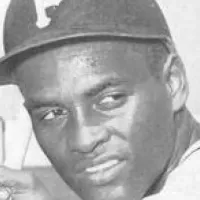
Roberto Clemente was a celebrated Puerto Rican baseball player for...
California is a U S state on the Pacific Coast...
Sports Illustrated SI is an American sports magazine launched in...

Los Angeles is the most populous city in California and...

News encompasses information about current events disseminated through various media...
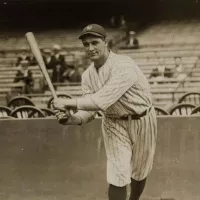
Lou Gehrig nicknamed the Iron Horse was a legendary New...
Trending

55 minutes ago Cole Anthony's Status: Coach Ott Addresses Absence; Buyout Rumors Emerge

55 minutes ago Cavan Sullivan, 16, Makes History Scoring Twice in Champions Cup Rout!
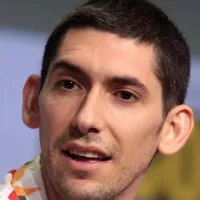
2 hours ago Max Landis Returns to Hollywood with G.I. Joe Movie at Paramount
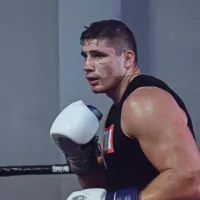
2 hours ago Usyk vs. Verhoeven: WBC Title Fight at the Pyramids of Giza
2 hours ago Makai Lemon aims Giants youth role, shines at Combine, Jets eyes superstar potential.

2 hours ago Tye Kartye placed on waivers by Kraken; Joseph assigned to Springfield.
Popular

Jesse Jackson is an American civil rights activist politician and...

Susan Rice is an American diplomat and public official prominent...

XXXTentacion born Jahseh Dwayne Ricardo Onfroy was a controversial yet...

Michael Joseph Jackson the King of Pop was a highly...

Barack Obama the th U S President - was the...

Hillary Diane Rodham Clinton is a prominent American politician lawyer...
